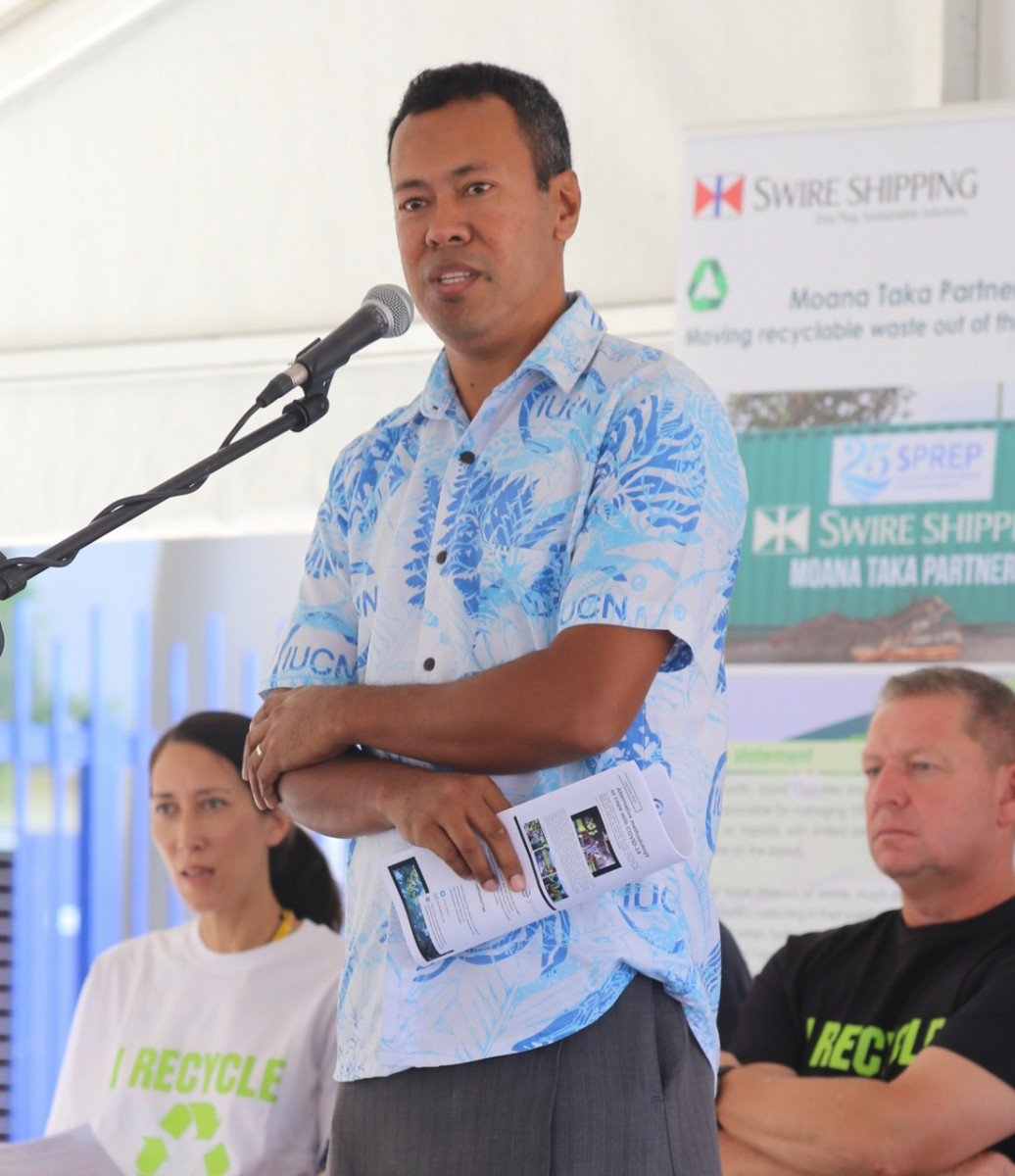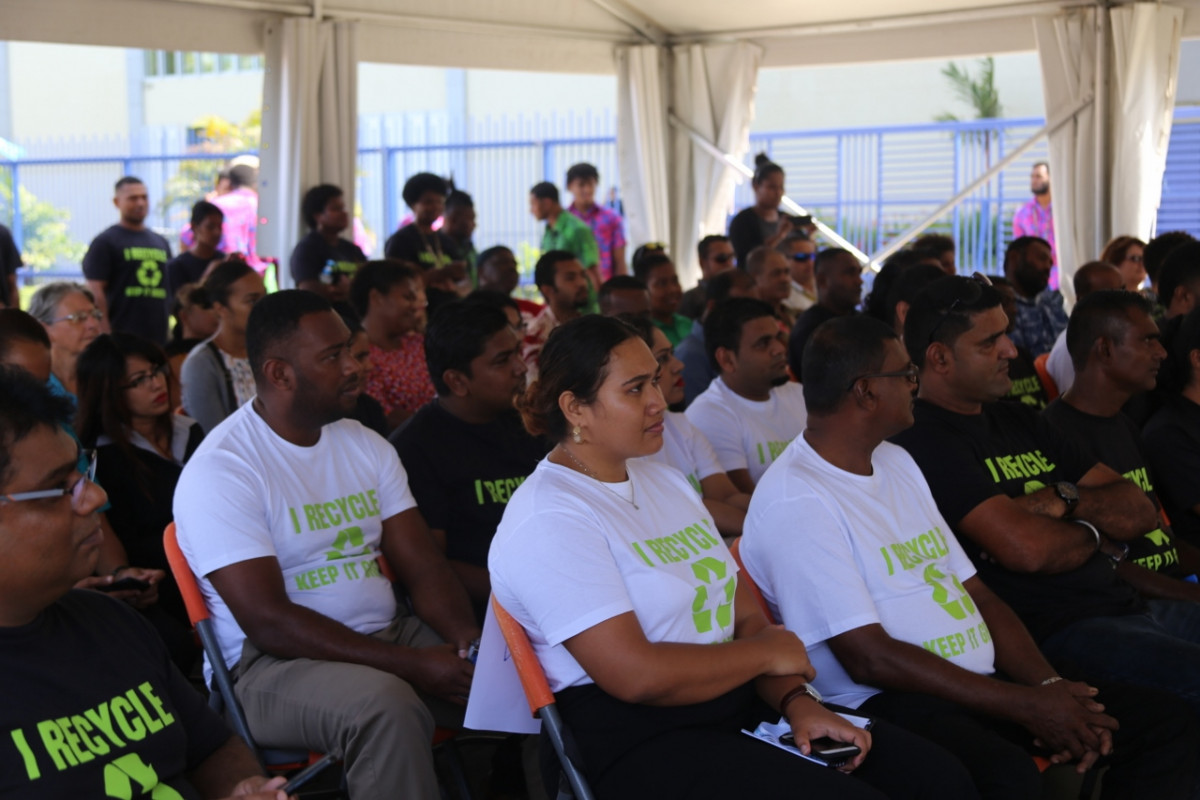Women: improving livelihoods through sustainable waste management
To commemorate Global Recycling Day 2021, IUCN partnered with Waste Recyclers Fiji Ltd (WRFL) and Swire Shipping to raise awareness of the importance of recycling and sustainable waste management in Fiji. With the theme “I Recycle”, the collaborative event was held at the Vodafone Arena in Suva, Fiji on 18 March.
Chief Guest of the day Shamima Ali, Coordinator of the Fiji Women's Crisis Centre highlighted the integral part women play in waste disposal in Fiji’s communities. “We need to recognise women’s roles in waste disposal. Their roles should be enhanced, not only as participating the way we have seen them so far but fully participating in decision- making as well”, Ms. Ali said. Closely linked, WRFL data showed a higher number of women engaged in recyclables drop-off than men over their years of operation. This was shared by Joseph Inoke of Waste Recyclers of Fiji.
The event was attended by members of the public and important players in the waste management sector including the Department of Environment, Swire Shipping Ltd, Pacific Energy the major sponsors of this year’s event, Paul Evers of HG Leach who manages the Naboro Landfill, passionate environment advocate and Member of Parliament Lenora Qereqeretabua, representatives from women’s groups in the Suva area and others. Members of the public were encouraged to practice recycling by bringing their household wastes to booths set up at the site in an effort to raise awareness. Also speaking at the event, IUCN Climate Change Programme Coordinator Paula Katirewa stressed the importance of stakeholder collaboration for successful recycling efforts.
IUCN Oceania Regional Director Mason Smith said that the partnership with WRFL would continue through collective efforts of informing and empowering stakeholders to work together to forge and implement solutions to environmental challenges. “IUCN is always keen and will continue to provide public, private and non-governmental organisations with the knowledge and tools as well as having the unique ability to convene diverse stakeholders and provide the latest science, objective recommendations, and on-the-ground expertise.”, Mr. Smith mentioned.
This partnership was made possible through the IUCN Norwegian government-funded Plastic Waste Free Island Project (PWFI). This project is being implemented to advance six key pillars; partnerships, knowledge, capacity building, policy, business, and innovation, and IUCN's partnership with WRFL is a means to advance these pillars.



